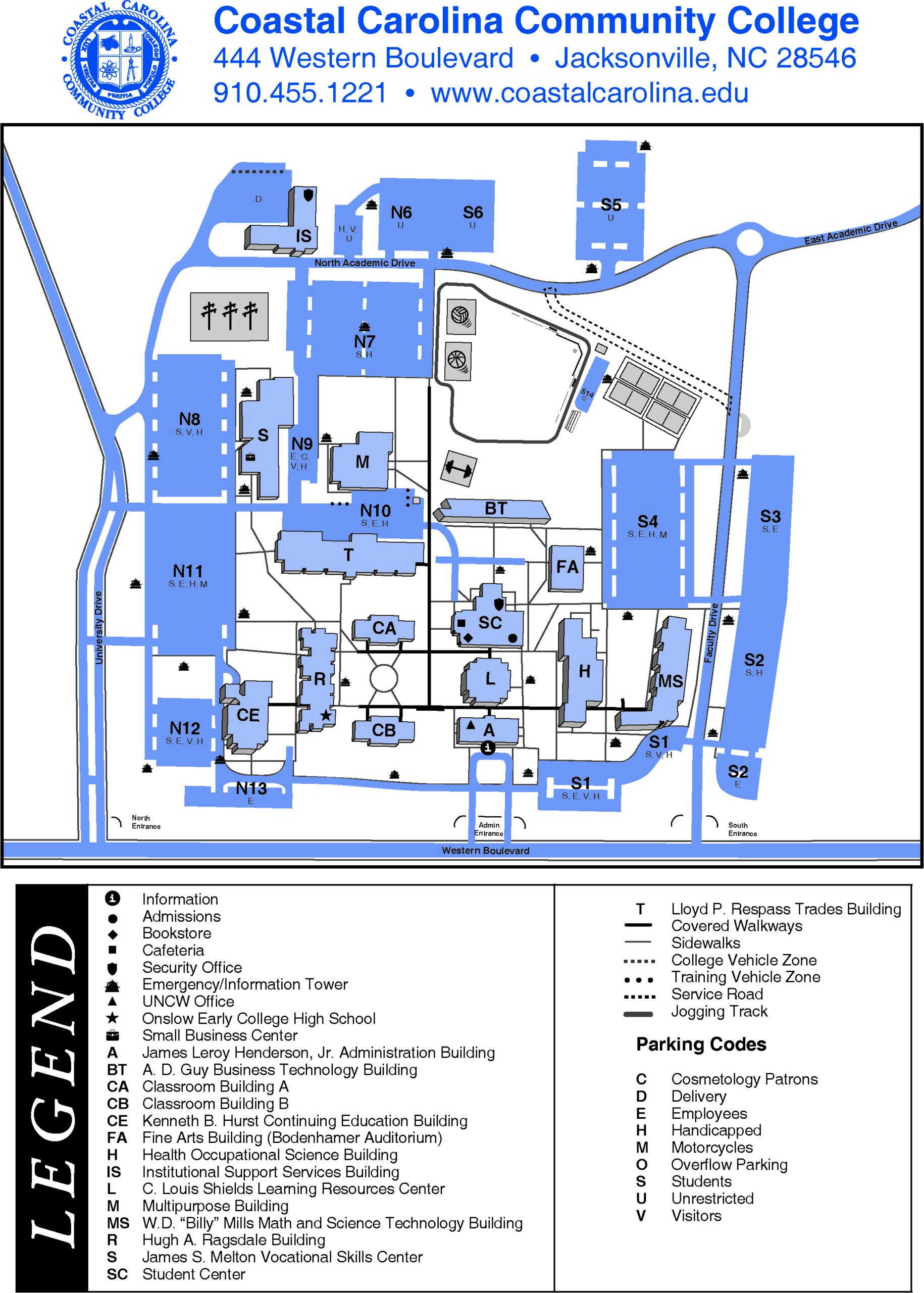Security and Parking
 Coastal Carolina Community College’s student population consists of individuals from all 50 states and several foreign countries. Even with their diverse backgrounds, Coastal’s students are highly motivated individuals with strong desires for involvement and achievement. We strive to make everyone's experience the best possible with our Security and Parking regulations.
Coastal Carolina Community College’s student population consists of individuals from all 50 states and several foreign countries. Even with their diverse backgrounds, Coastal’s students are highly motivated individuals with strong desires for involvement and achievement. We strive to make everyone's experience the best possible with our Security and Parking regulations.
Although Coastal Carolina has experienced a lower incidence of crime than surrounding areas, our community is not immune to crime. The number of incidents occurring on the campus can be reduced if all members of the community practice everyday precautions that will help to make a safer campus community.
Freedom has different meanings for many people. All of us expect the freedom of personal safety and the right to enjoy a life free of crime. We all must become aware of the precautions necessary to reduce the likelihood that we will become a victim of crime. Remember that no one is free from the danger of crime, on or off campus. You are the key to your own safety and the safety of others on campus.
Our goal is to create a safe campus with the help of the Coastal community. Students and their families are understandably concerned about the issue of safety on campus. Coastal also is concerned and understands its responsibility in contributing to a safe and secure campus environment. The Security Services Department will respond in all cases of criminal activity and any violation of criminal law can be investigated by Coastal Carolina Community College’s Security Services Department and could lead to criminal prosecution.
Any questions or concerns about the Department or procedures and operations should be addressed with Coastal’s Chief of Security.
The Security Services Office is located in the Student Center Building.
Office hours are Monday - Thursday, 8:00 a.m. - 5:00 p.m. and Friday,
8:00 a.m. - 12:00 p.m.
The Security Services Department can be reached 24 hours a day by calling 910.938.6290 or utilizing the emergency/information towers across campus.
Active Attacker Situations
If you are to ever find yourself in the middle of an active attacker event, your survival may depend on whether or not you have a plan. The plan doesn’t have to be complicated. There are three things you could do that make a difference:
AVOID. DENY. DEFEND.
BE PREPARED:
AVOID starts with your state of mind. You want to avoid the attacker and the area in which the attacker is located.
- Pay attention to your surroundings.
- Have an exit plan.
- Move away from the source of the threat as quickly as possible; leave your belongings behind.
- The more distance and barriers between you and the threat, the better.
- Help others escape if possible.
- Call 9-1-1 when you are safe.
DENY access when getting away is difficult or maybe impossible.
- Keep distance between you and the source of the threat.
- Create barriers to prevent or slow down a threat from getting to you; lock and blockade the door, block windows, and close blinds.
- Turn off lights
- Remain out of sight and quiet by hiding behind large objects and silence your phone.
- Do not trap yourself or restrict your options for movement.
DEFEND yourself: you have the right to protect yourself from a threat.
- If you cannot Avoid or Deny be prepared to defend yourself.
- Attempt to incapacitate the attacker.
- Be aggressive and committed to your actions; improvise weapons.
- Do not fight fairly; THIS IS ABOUT SURVIVAL!
When law enforcement arrives:
- Remain calm and follow instructions. Law enforcement may not know yet who the threat is and may treat everyone they see as if they’re the attacker(s).
- Keep your hands visible at all times.
- Avoid pointing or yelling.
- Know that help for the injured is on the way; law enforcement who arrive first will not stop to help wounded.
